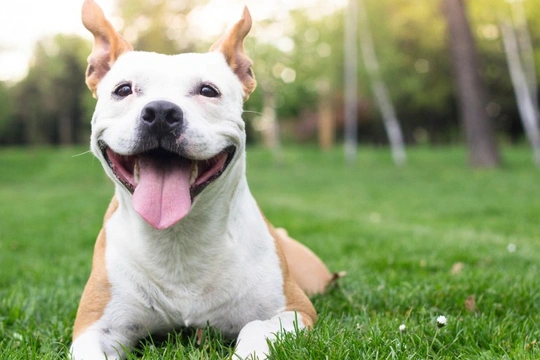
Why does my dog keep getting the hiccups?
A bout of hiccups can be quite amusing in the dog, and sometimes it is the dogs that seem to be more surprised when they start hiccupping than their owners! Most dogs don’t get the hiccups regularly, but some do – and this is particularly common in puppies.
If your dog gets the hiccups regularly of if they seem to have acute, protracted bouts of hiccups, there are a wide range of potential reasons for this, and it is a good idea to try to get to the bottom of it.
In this article we will explain in more detail what hiccups are, and why your dog might be getting the hiccups regularly. Read on to learn more.
What are hiccups?
Hiccups are involuntary spasms or contractions of the diaphragm, which cause the diaphragm to contract inwards, which is followed by a transient closure of the dog’s vocal cords, and it is this second stage of the hiccup that produces the sound we all know and recognise.
A dog may simply hiccup once or hiccup several times over the course of a few minutes, and the timing between each hiccup in a bout of them will tend to be fairly uniform.
The sensation and sound of hiccupping can confuse your dog, because hiccupping is involuntary and cannot be deliberately controlled.
So, what causes dogs to hiccup, and what does it mean if they hiccup a lot?
Excitement
Children tend to get the hiccups more often than adults, and so too are puppies more prone to having hiccups than adult dogs. As is the case for children, excitement is perhaps the most common reason for a puppy to get the hiccups, and this partially explains why puppies hiccup more often than adult dogs as they tend to be more excitable!
If your dog is having a lot of fun, anticipating something, or has their attention focused on something they want (such as a toy, treat, or another dog they want to play with) they might get the hiccups.
Stress
Stress can bring about a wide range of temporary physical changes in your dog’s body, including an increased heart rate, faster, shallower breathing, and the triggering of the body’s fight or flight responses.
These internal changes can trigger a case of the hiccups, which might further add to your dog’s stress levels by adding additional stimulus to contend for your dog’s attention.
If your dog seems to get the hiccups when they’re facing something new, are a little daunted, or are otherwise feeling under pressure, this may indicate that stress is triggering your dog’s hiccups.
Fear or nervousness
Nervousness or fear has many subtle physical effects on the body just as stress does, and a dog that is anxious or nervous might also get the hiccups. If your dog’s hiccups seem to be situational and only or mainly occur when your dog is anxious or nervous, this might be the cause.
Eating too fast
Eating too fast, too much, or something that is fermented, carbonated or gassy can all cause the hiccups in dogs, and many dogs eat much too fast and don’t pay enough attention to the food that they are eating.
Dogs that wolf down their food or eat first and think later are those that are most likely to burp after eating, need a good rest to digest their dinner and potentially, get the hiccups when eating too.
You may be able to slow down your dog’s eating habits down by putting obstacles (such as a ball) in their food bowl for them to eat around, or by dividing their meals into several smaller portions broken up to give to them over the course of the day.
Air in the stomach
Air in the stomach is something else that can occur in dogs that eat fast and gulp their food (often without chewing it properly) and this can lead to bloating, discomfort, gas, and burping. It may also cause the hiccups, as the excess air in the stomach can trigger the diaphragm spasms that result in hiccups.
Following the same steps above to slow down your dog’s eating habits can help to prevent this from occurring in future. It will also lessen the risk of them developing more serious conditions from eating too fast and getting air in the stomach like bloat, which is a particular threat to large, deep chested dogs like the Great Dane.
More serious problems
Hiccups are rarely an indicator of a serious health problem in dogs, but there are some health conditions that can cause or worsen hiccups that you should be aware of. These include some respiratory disorders such as asthma and pneumonia, and also heat stroke in some situations as well, which is a particular risk for brachycephalic dog breeds.
If you can’t get to the bottom of your dog’s hiccups or if they have suddenly begun getting regular bouts of hiccups – or if you have spotted any other problems or changes in your dog’s health or normal behaviour – talk to your vet for help working out the cause.



